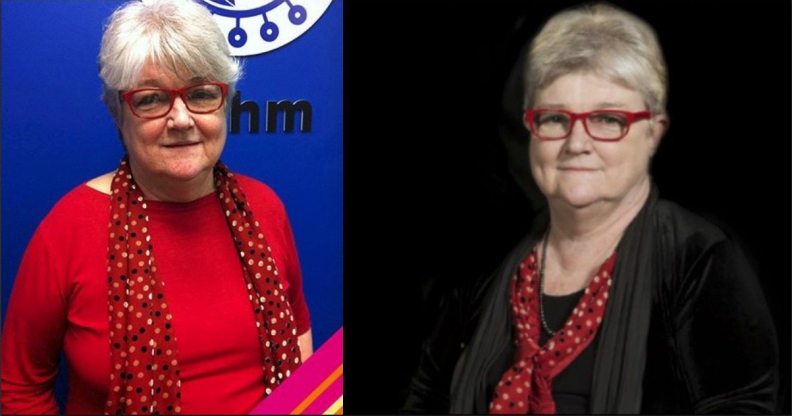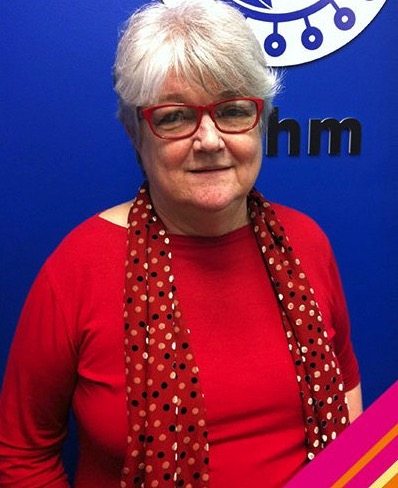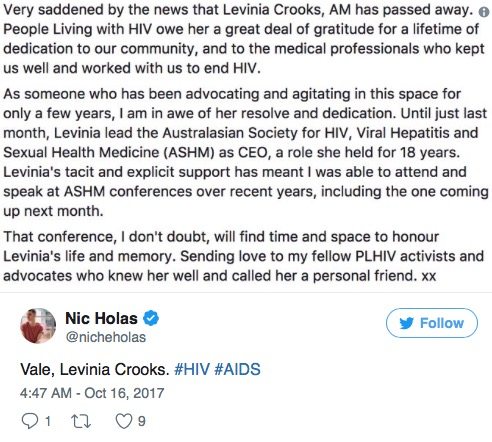Woman who dedicated 30 years to helping people with HIV AIDS dies

A woman who tirelessly dedicated her life to tackling stigma and improving outcomes around HIV has passed away.
Levinia Crooks AM died in Sydney Sunday evening after a long battle with illness, aged 56.
She dedicated three decades to championing people’s rights in the health sector, first coming across HIV AIDS when friends were affected by the condition in the 1980s.

HIV testing (NOEL CELIS/AFP/Getty Images)
In 2008 she was made a Member of the Order of Australia for her contribution to HIV policy, her care for people with HIV and her contribution to health
Crooks worked to deliver major changes in the viral hepatitis response and greater attention to sexual health needs.
Crooks once said: “In an environment like that you have to act. It is wrong that you have to act, it is wrong that you have to establish a parallel process.
“But there is a period of time in which you do have to do that.”
Her work began as a researcher to help develop counselling support services for people affected by HIV in its earliest days.
She later became President of the New South Wales AIDS Council, the Bobby Goldsmith Foundation and served on the board of the Australian Federation of AIDS Organisations.

In a statement they said: “Her drive and focus on the needs of the workforce in HIV, viral hepatitis and sexual health pioneered ASHM as a provider of high quality resources and training.
Australia’s leading HIV organisations have lead tributes to Crooks.

“It is probably difficult to think of another person who has had the kind of influence that Levinia has had over the course of the last three decades of the epidemic,” Chad Hughes, president of the Victorian AIDS Council (VAC), said.
“Her career began at a time when there was little hope for people living with HIV and she was instrumental, not only in the areas of care and support for people living with HIV and AIDS but at important moments in prevention such as her role in the drafting of national guidelines for the provision of post-exposure prophylaxis (PEP).
“At every level, her contribution furthered debate in substantive and important ways. Her leadership legacy is one of partnership, collaboration, vision and courage and in many ways she will be impossible to replace.”

